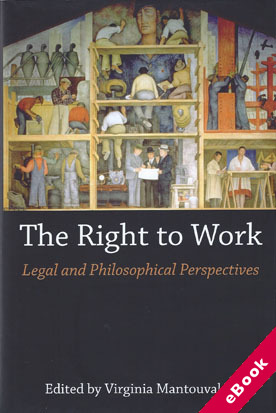
The device(s) you use to access the eBook content must be authorized with an Adobe ID before you download the product otherwise it will fail to register correctly.
For further information see https://www.wildy.com/ebook-formats
Once the order is confirmed an automated e-mail will be sent to you to allow you to download the eBook.
All eBooks are supplied firm sale and cannot be returned. If you believe there is a fault with your eBook then contact us on ebooks@wildy.com and we will help in resolving the issue. This does not affect your statutory rights.
The value of work cannot be underestimated in today's world. Work is valuable because productive labour generates goods needed for survival, like food and housing; goods needed for self-development, like education and culture; and other material goods that people wish to have in order to live a fulfilling life.
A job also generally inspires a sense of achievement, self-esteem and the esteem of the others. People develop social relations at work, which can be very important for them. Work brings both material and non-material benefits.
There is no doubt that work is a fundamental good. Do we have a human right to this good? What is the content of this right? Does it impose a duty on governments to promote full employment? Does it entail an obligation to protect individuals from unfair dismissal? Does it impose an obligation to promote healthy and safe conditions at work? Who are the right holders? Do migrants have a right to work, for example? How about undocumented migrants, asylum-seekers or refugees?
The chapters of this book address the uncertainty and controversy that surrounds the right to work both in theoretical scholarship and in policy-making. They discuss the philosophical underpinnings of the right to work, and its development in human rights law at national (in jurisdictions such as the UK, Australia, France and the US) and international level (in the context of the European Social Charter, the International Labour Organisation and the European Convention on Human Rights and other legal orders).